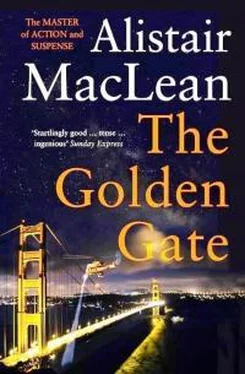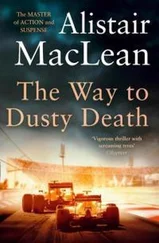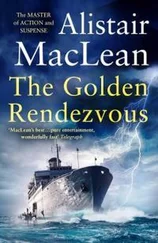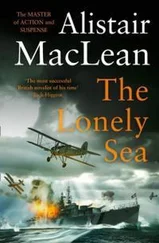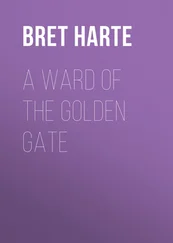‘I won’t keep you long. Do you mind if we search your ambulance?’
O’Hare stared at him. ‘What the hell for? What do you think I’m carrying? Bodies? Narcotics – well, quite a lot really. What do you think I would be taking off this bridge that I didn’t bring on to it? I’m a doctor, not an FBI agent.’
‘We’ll forget it. Another question. Do you mind if we send a guard along – for observation purposes?’
‘Send half a dozen. They’ll get damned little observation done.’
‘What’s that supposed to mean?’
‘It means that Harben – he’s chief of surgery – cherishes his unit like a newborn baby. He wouldn’t give a damn about you and your bridge. If any of your men tried to force their way into emergency reception of the emergency theatre he’d have a dozen sharpshooters there in ten minutes. I’m not joking – I’ve seen him do it.’
‘We’ll forget that, too. It’s unimportant.’
‘One thing that is important. Will you phone, ask them to have the emergency operating theatre ready and Dr Huron standing by.’
‘Dr Huron?’
‘Senior psychiatrist.’
‘Right.’ Branson smiled faintly. ‘Do you know that a Presidential route is always laid out so that it’s never more than a few minutes from the nearest hospital? Just in case. Convenient, isn’t it?’
‘Very.’ O’Hare turned to the driver. ‘Start the siren.’
As the ambulance moved towards the south tower they were passed by a TV van and generator truck coming the other way. Immediately, cameramen, photographers and reporters began moving into what they assumed would be the same TV arena as before. Some cameramen were so overcome by the occasion that they began wasting film on the forthcoming truck as if this were an unprecedented spectacle in itself.
Revson was not one of those who joined in the surge forward. He moved in the opposite direction and regained his seat in the deserted press coach. He undipped the base of his camera, removed the miniaturized transceiver, slipped it into a side pocket, reached into his carrier bag and fed spare film into the base of his camera. He was just reclipping the base of the camera when he became aware of being watched. He looked up. Blue eyes under blond hair, a head the approximate shape of a sugar cube and a vacuous smile. Revson believed in that vacuous smile the way he believed in Santa Claus. Branson would have settled for nothing less than an exceptional man when picking his lieutenant.
‘Revson, isn’t it?’
‘Yes. Van Effen, I believe.’
‘Yes. Why aren’t you out there with the others, recording this historical moment for posterity?’
‘First, what is there to record yet? Second, the big eye of TV can do a damned sight better job of posterity-recording than I can do. Third, if you’ll excuse the hackneyed phrase, what I’m after is the human interest angle. Fourthly, I prefer to load in the shadow.’
‘That looks a most exceptional camera.’
‘It is.’ Revson permitted himself a small proprietary smile that almost bordered on a smirk. ‘Handmade and assembled. Swedish. A rare species. The only camera in the world that can take colour stills, black and white stills and is a ciné-camera at the same time.’
‘May I have a look? I’m a bit of a camera buff myself.’
‘Certainly’ The battery-powered air-conditioning in the coach, Revson thought, was falling down on the job.
Van Effen examined the camera with the eye of a connoisseur. Inadvertently, as it seemed, his hand touched the spring clip at the base. A dozen cassettes and spools tumbled on to the seat beside Revson.
‘I am sorry. It would seem that I’m not all that much of a camera buff.’ He inverted the camera and looked with admiration at the recessed base. ‘Very very ingenious.’ While Revson sat, acutely conscious of the slight bulge caused by the transceiver in his side pocket, Van Effen meticulously replaced cassettes and spools in the base, closed the flap and handed the camera back to Revson. ‘Excuse my curiosity.’
‘Well, you went to the right finishing school, anyway.’
‘It always shows.’ Van Effen gave him his vacuous smile and left.
Revson did not mop his brow for it was a gesture alien to his nature. Had he been a browmopper, he would have done so. He wondered if Van Effen had noticed the two tiny spring clips in the base. He probably had. Had he realized their significance? Equally probably not. They could have been retaining clips for any number of esoteric attachments.
Revson turned in his seat. The hostages were descending from their coach, the President manfully substituting for his black scowl a calm, resolute and statesmanlike expression. Even Van Effen, Revson saw, had his eyes on them. Revson left the coach by the door opposite the driver’s so that he was on the blind side of all the spectators and participants. He leaned his elbows in brief contemplation on the outer rail, then opened his right hand, the one that held the transceiver. He had read somewhere that it took a solid object, accelerating at thirty-two feet per second, only three seconds to fall from the bridge to the Golden Gate and he gravely doubted whether the man responsible for those figures could count. Nobody had noticed anything amiss. Revson had covered his bets again.
He made his unhurried and silent entry into the coach again, closed the door quietly behind him and emerged, much less quietly, from the opposite door. Van Effen turned, smiled vaguely, then turned back his attention to the circus on hand.
As before, Branson had everything stage-managed to perfection, hostages and newsmen seated in their proper places, ciné and still cameramen strategically positioned although, this time, there was one minor but significant difference from the previous occasion. This time Branson had two TV cameras instead of one. Without further ado Branson, calm, relaxed and as assured as ever, re-embarked upon his psychological warfare. Apart from being a born general and a born stage manager, he could also have been a born anchor-man on TV. He divided his attention fairly evenly between the TV lens and those seated beside him. After a wholly unnecessary introduction of himself, the President, the King and the Prince, his first reference, not unsurprisingly, was to cameras.
‘We have, this afternoon, two television cameras with us. One for the illustrious company you are now viewing, the other facing the other way towards the south or San Franciscan shore. The second one is a tracking camera with a telephoto zoom lens, that, up to half a mile, can give the clarity of resolution that one would expect at the distance of ten feet. As there is no trace of fog this afternoon it should be able to perform its function admirably. Its function is as follows.’
Branson lifted the canvas cover from a large, rectangular box then, microphone in hand, went and sat in a specially reserved vacant chair by the President. He gestured towards the object he had just unveiled.
‘A courtesy gesture towards our assembled guests. A rather splendid colour TV set. No better obtainable anywhere. American, of course.’
The President had to make himself heard. After all, most of the so-called civilized eyes in the world were upon him. He said, with heavy sarcasm and a cold distaste: ‘I’ll wager you haven’t paid for your TV set, Branson.’
‘That’s hardly relevant. The point is that I don’t want to make you and your guests feel like second-class and deprived citizens. All the world will be able to see in close detail how we are going to attach the first of our explosive charges to one of the cables by the south tower and I feel it would be unjust to deprive you of the same privilege. After all, at a distance of over two thousand feet and an elevation of over five hundred feet, it would be difficult for even the keenest-eyed to appreciate the finer points of this operation. But the box here will show you everything you want.’ Branson smiled. ‘Or don’t want. Now, please direct your attention to the vehicle descending the ramp from the rear coach.’
Читать дальше
Конец ознакомительного отрывка
Купить книгу
